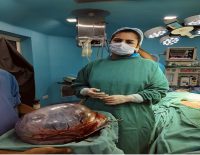Hope for Osteoporosis: Bacillus coagulans may boost bones’ strength, says AIIMS

In a landmark study that could transform osteoporosis management, researchers from the All India Institute of Medical Sciences (AIIMS), New Delhi, have found that the probiotic Bacillus coagulans can significantly reverse inflammatory bone loss in post-menopausal women. Published in the prestigious journal Gut Microbes, the study highlights a novel therapeutic strategy that targets the “Gut-Immune-Bone” axis to strengthen bones naturally.
The Hidden Link Between Gut Health and Bone Loss
Osteoporosis is a debilitating skeletal disorder characterized by reduced bone mineral density (BMD) and heightened fracture risk, particularly among post-menopausal women due to estrogen deficiency. Traditionally treated with hormone therapy and calcium supplements, osteoporosis has remained a major public health concern globally.
Now, emerging research points to the gut microbiome as a surprising, yet critical player in bone health. The AIIMS team, led by Dr. Rupesh K. Srivastava, discovered that estrogen deficiency leads to gut dysbiosis—an imbalance in gut bacteria—which in turn damages the gut barrier, increases systemic inflammation, and accelerates bone deterioration.
“Our findings show that gut health and immune balance are deeply intertwined with bone metabolism,” said Dr. Srivastava. “Estrogen deficiency disrupts this balance, leading to a vicious cycle of inflammation and bone loss.”
Bacillus coagulans: A Powerful Ally Against Osteoporosis
The research team administered Bacillus coagulans to mice mimicking post-menopausal osteoporosis (PMO). Remarkably, the probiotic treatment restored gut integrity, improved immune cell regulation, and reversed bone damage.
Key highlights of the study include:
Enhanced Bone Density: Bacillus coagulans improved BMD and restored bone microarchitecture in osteoporotic mice.
Strengthened Gut Barrier: The probiotic reduced gut permeability (“leaky gut”), a major contributor to systemic inflammation.
Boosted Beneficial Immune Cells: Treatment enhanced the population of regulatory B cells (Bregs) and regulatory T cells (Tregs), which are vital for suppressing bone-resorbing inflammation.
Reduced Harmful Osteoclasts: The probiotic curtailed the activity of osteoclasts, the cells responsible for bone breakdown.
“Our work underscores how restoring gut microbiota can serve as a natural, safe way to mitigate bone loss,” noted Dr. Srivastava.
Short-Chain Fatty Acids: The Key Mediators
Further analysis revealed that Bacillus coagulans stimulated the production of short-chain fatty acids (SCFAs)—specifically butyrate, acetate, and propionate. These SCFAs are crucial for gut and bone health.
Among them, butyrate stood out for its potent effects. It enhanced the differentiation of protective immune cells (Bregs and Tregs) while suppressing harmful Th17 cells, thereby creating an anti-inflammatory environment conducive to bone preservation.1
Laboratory studies on human peripheral blood samples confirmed that SCFAs, particularly butyrate, inhibited the formation of bone-resorbing osteoclasts in both healthy individuals and PMO patients.
Potential Game-Changer in Osteoporosis Treatment45
The study opens exciting new therapeutic avenues. Instead of relying solely on calcium, vitamin D, or hormone therapy, modulating the gut microbiome through targeted probiotics like Bacillus coagulans could offer a safer, natural alternative for osteoporosis management.
“Probiotic therapy targeting the Gut-Immune-Bone axis could revolutionize the way we prevent and treat osteoporosis,” emphasized Dr. Srivastava.
Importantly, Bacillus coagulans is classified as “Generally Recognized As Safe (GRAS)” by the U.S. FDA, further supporting its potential for widespread therapeutic use.







